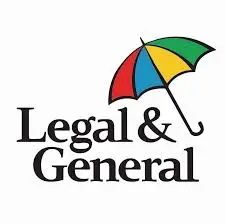- Critical Illness Insurance Guide
- Illnesses Covered Table
- Life & Critical Illness Cover Guide
- Critical Illness Insurance Quote
- Life & Critical Illness Cover Quote
- Mortgage Life & Critical Illness Quote
- Family Income Benefit Quotes
- Stand Alone Critical Illness Quote
Instant Online Quote
- Term Life Insurance Quote
- Mortgage Life Insurance Quote
- Income Protection Insurance Quote
- Accident Sickness & Unemployment Cover Quote
- Life Insurance Advice
Types of Insurance
- Term Life Insurance
- Decreasing Term Life Insurance
- Income Protection
- Accident Sickness Unemployment
- Whole Life Insurance
- Waiver of Premium
LV Enhances its Critical Illness Cover
LV Critical Illness Cover
The latest enhancements to LV Critical illness cover can now provide you with wider coverage, more partial payment options for less severe conditions, as well as larger payments for some conditions.
Below is quick guide of what's now covered under their critical illness policy for you :
Here is a list of all the 59 conditions LV cover which includes 18 ABI+ definitions, 16 additional partial payments and 16 unique enhanced payments.
The full medical explanation of each of these conditions is in the appendix.
18 ABI+ Conditions - full payment
Alzheimer’s disease
The ABI definition excludes other types of dementia and also offers the ability to limit payment for Alzheimer’s disease before a certain age. Our definition has no limit on the age we’ll accept a claim and we do not exclude other types of dementia.
Aorta graft surgery
The ABI definition for Aorta Graft Surgery only covers surgery for disease of the aorta. Our definition includes surgery for traumatic injury as well as disease. We believe that any surgery to repair the heart is serious and so should be covered.
Benign brain tumour
Our definition will cover your clients following surgery to remove a brain tumour before it leads to permanent nerve damage. We recognise that undergoing brain surgery is in itself a significant medical procedure, so believe your clients should be covered for this.
Cancer
Includes cover for the occurrence of a malignant basal cell carcinoma or malignant squamous cell carcinoma. This means we are providing additional cover and full payment of benefit for two of the more common skin cancers.
Coma
The ABI definition requires a continuous comatose state on life support for 96 hrs. Our definition requires no minimum length of time in a coma on life support. We recognise that being in a comatose state on life support for any amount of time is likely to cause permanent neurological deficit and persistent clinical symptoms that will have a big impact on a person’s life.
Coronary artery bypass grafts (CABG)
The ABI definition requires that the breast bone is divided for surgery. Due to advances in surgical techniques surgeons do not always need to divide the breastbone to give this treatment.
Our definition also covers surgery completed through keyhole surgery. We believe that our cover should be in line with medical advancements and give your clients the financial support they need after such an operation.
Heart attack
Our definition does’t have the requirement of typical clinical symptoms. Heart attacks are one of the most claimed for critical illnesses and attacks without chest pain or other typical symptoms are a real occurrence.
Heart valve replacement or repair
Our definition does not require the breast bone to be divided during surgery and also includes keyhole surgery. We believe that our cover should be in line with medical advancements and so we reflect this by giving your clients the financial support they need after such an operation.
HIV infection
LV= definition provides coverage within any occupation as we do not state a list of eligible occupations. We also provide coverage to a wider geographical area than just the UK.
Loss of hands or feet
Our definition only requires the permanent severance of one hand or foot to qualify for a full payout of the amount of cover.
Major organ transplant
Our definition provides additional cover for a transplant of a whole lobe of the lung or liver.
Motor neurone disease
We don’t impose any restrictions by age on this or any of the conditions we cover.
Multiple sclerosis
We want to pay the claim as soon as possible and so have reduced the requirement of persisting clinical symptoms of six month, down to three months.
Paralysis of limbs
Our definition only requires the permanent paralysis of any one limb to qualify for a full payout of the amount of cover.
Parkinson’s disease
Our definition includes coverage for Parkinson’s disease secondary to drug abuse and other parkinsonian syndromes. It also excludes limiting payment before a certain age.
Stroke
Our definition includes coverage for traumatic injury to the brain as we understand that traumatic injury can also cause a stroke and have just as critical impact on a customers life.
Terminal illness
Our cover allows for a claim to be paid within the last 12 months of the policy, even if your client is expected to die after the policy has ended.
Third degree burns
The ABI definition requires burns to have developed on 20% of the body’s surface. We include and will also pay for burns covering 50% of the face or head. We recognise the serious psychological impact of burns to these areas.
16 additional partial payments (APP)
We want you to feel confident that the product you’re recommending offers cover for a wide range of illnesses and not only the most serious ones. Our policy provides cover for those illnesses that may not be life threatening but can still have a big impact on your client's life and financial situation.
Our partial payments are in addition to your clients' cover.
Condition |
Payment |
|---|---|
Accident hospitalisation cover |
15% of cover up to £15,000 |
Arteriovenous Malformation (AVM) of the brain |
12.5% of cover up to £12.500 |
Ductal or Lobular carcinoma in-situ of the breast |
12.5% of cover up to £12.500 |
Carcinoma in-situ of the cervix uteri |
12.5% of cover up to £12.500 |
Carcinoma in-situ of the urinary bladder |
12.5% of cover up to £12,500 |
Non-severe cardiomyopathy |
25% of cover up to £25,000 |
Coronary artery angioplasty |
25% of cover up to £25,000 |
Severe Crohn’s disease* |
12.5% of cover up to £12.5 |
Minor heart attack |
25% of cover up to £25,000 |
Removal of one or more lobe(s) of the lung |
12.5% of cover up to £12.5k |
Prostate cancer |
25% of cover up to £25,000 |
Partial loss of sight |
12.5% of cover up to £12,500 |
Minor stroke |
25% of cover up to £25,000 |
Testicular carcinoma in situ |
12.5% of cover up to £12,500 |
Partial third degree burns |
12.5% of cover up to £12,500 |
Severe ulcerative colitis* |
12.5% of cover up to £12,500 |
* For Crohn’s disease and Ulcerative colitis, we’ll only pay a partial payment for one of these conditions and not both. So for example if we’ve paid a claim for your client for Crohn’s disease, they'll no longer be covered for ulcerative colitis.
The 25 other conditions we cover - full payment
The illnesses listed below are ABI standard.
Aplastic anaemia
A rare and severe form of anaemia where bone marrow doesn’t produce sufficient new cells to replenish blood cells. Complete aplastic anaemia is where there is a complete bone marrow failure.
Bacterial meningitis
Meningitis is inflammation of the membranes which cover the brain and spinal cord. Bacterial meningitis is where this inflammation is caused by a bacterial infection.
Benign intramedullary spinal cord tumour
A benign intramedullary spinal cord tumour is a benign (non cancerous, non malignant) growth in the bone marrow of the spinal cord.
Blindness
Permanent and irreversible loss of sight.
Cardiac arrest
The cessation of normal circulation of the blood due to failure of the heart to contract effectively.
Cardiomyopathy
A disorder of the heart muscle which prevents it from working correctly.
Creutzfeldt-Jakob disease
A rare, degenerative brain disease that leads to a rapid decrease of mental function and movement. One variant, called new variant CJD, is the human form of BSE (Mad cow disease).
Deafness
Permanent and irreversible loss of hearing.
Dementia
A progressive, degenerative disease of the brain which can lead to loss of intellectual abilities. When described as ‘organic’ it means that it is due to a physical disease of the brain tissue rather than mental illness.
Encephalitis
An acute inflammation of the brain, usually caused by a viral infection. Symptoms can include fever, headache, weakness or seizures.
Idiopathic arterial pulmonary hypertension
A rare disease wich involves high blood pressure in the blood vessels of the lungs.
Kidney failure
Kidney failure is where the kidneys fail to filter toxins and waste products from the blood adequately.
Liver failure
Liver failure is where the liver loses the ability to regenerate and repair. The liver can therefore no longer adequately carry out its functions which aid the body’s digestion and removal of waste products.
Loss of independent existence
Loss of independence resulting in a permanent inability to perform at least three activities of daily living - Eating, Toileting, Dressing, Continence and Transfer and Mobility.
Loss of speech
Permanent and irreversible loss of speech as a result of physical injury or disease.
Multiple system atrophy
A rare, degenerative neurological disorder caused by cell loss in certain areas of the central nervous system. Its main symptoms include tremor and reduced movements similar to Parkinson’s disease but it has additional problems leading to a distinct diagnosis separate from Parkinson’s disease.
Open Heart Surgery
Surgery where the chest is cut open through the breast bone for the purpose of correcting a structural abnormality of the heart or performing a coronary artery bypass graft (CABG).
Pneumonectomy
Treatment most often used to treat lung cancer when less radical surgery cannot achieve satisfactory results.
Progressive Supranuclear Palsy
A rare, degenerative brain disease which involves gradual deterioration or death of cells in certain areas of the brain. Its main symptoms include tremor and reduced movements similar to Parkinson’s disease but it has additional problems leading to a distinct diagnosis separate from Parkinson’s disease.
Pulmonary Artery Surgery
The pulmonary artery is the artery that provides a blood supply to the lungs. This may become damaged or diseased and therefore require surgery to repair.
Severe lung disease
Lung disease is any disease or disorder that occurs in the lungs or causes the lungs not to work properly. To be classed as severe there must have been the need for continuous daily oxygen therapy for a minimum of 6 months, a vital capacity of less than 50% of normal and FEV1 being less than 40% of normal. These are tests of your ability to breathe properly.
Surgical removal of an eyeball
The complete removal of either eyeball by surgical procedure.
Systemic Lupus Erythematosus
The immune system attacks the body’s own cells and tissues, resulting in inflammation and tissue damage. It can affect any part of the body but most commonly affects the joints, skin, lungs, blood vessels, liver, kidneys and nervous system.
Total permanent disability
Totally or permanently unable to carry out tasks listed in the main policy.
Traumatic head injury
This is a head injury which is caused by trauma, for example accident or injury.
Unique enhanced payments
We'll pay 150% of your clients' cover
For six neurological conditions we cover, we’ll pay your client one and half times their cover, up to a maximum of £200,000 (on top of their original cover). This applies if they’re diagnosed under the age of 45.
Alzheimer’s disease |
Multiple system atrophy |
Dementia (including senile dementia) |
Parkinson’s disease |
Motor neurone disease |
Progressive Supranuclear Palsy |
We’ll pay double your clients cover
We have ten full payment conditions where we’ll pay your client twice the amount of their cover, up to a maximum of £200,000 (on top of their original cover). This applies if the claim is as a direct result of an accident.
Blindness |
Loss of speech |
Coma |
Paralysis of any limb |
Deafness |
Surgical removal of an eye |
Loss of hands or feet |
Third degree burns |
Loss of independent existence |
Traumatic head injury |
Children's Cover
Our children’s cover includes the same conditions as the standard policy except for Total Permanent Disability (TPD).
For any single policy the children’s cover is 50% of the full amount up to a maximum of £25,000. And, where the child is covered under more than one policy the maximum is £50,000 across all of those policies together.
Source LV 31/05/2013
Do you want advice on Critical illness cover?
After looking through the critical illness cover information if you would like Critical Illness Cover Advice , complete our critical illness cover and life insurance inquiry form and we will contact you to discuses your critical insurance and protection needs.
You may also be interested in:
- Term Life Insurance Explained
- Pension Term Assurance Explained
- Accident Sickness Unemployment Explained
- Income Protection Cover Explain
- Life Insurance Advice
- budget planer
- Mortgage Top Ten
Go Direct.co.uk is a trading style for website purposes of Go Direct UK Ltd.
Go Financial Services is a trading style of Go Direct UK Ltd which is an appointed representative of Personal Touch Financial Services Ltd which is authorised and regulated by the Financial Conduct Authority. Registered in England & Wales Company 5703224. FCA Number 456600










